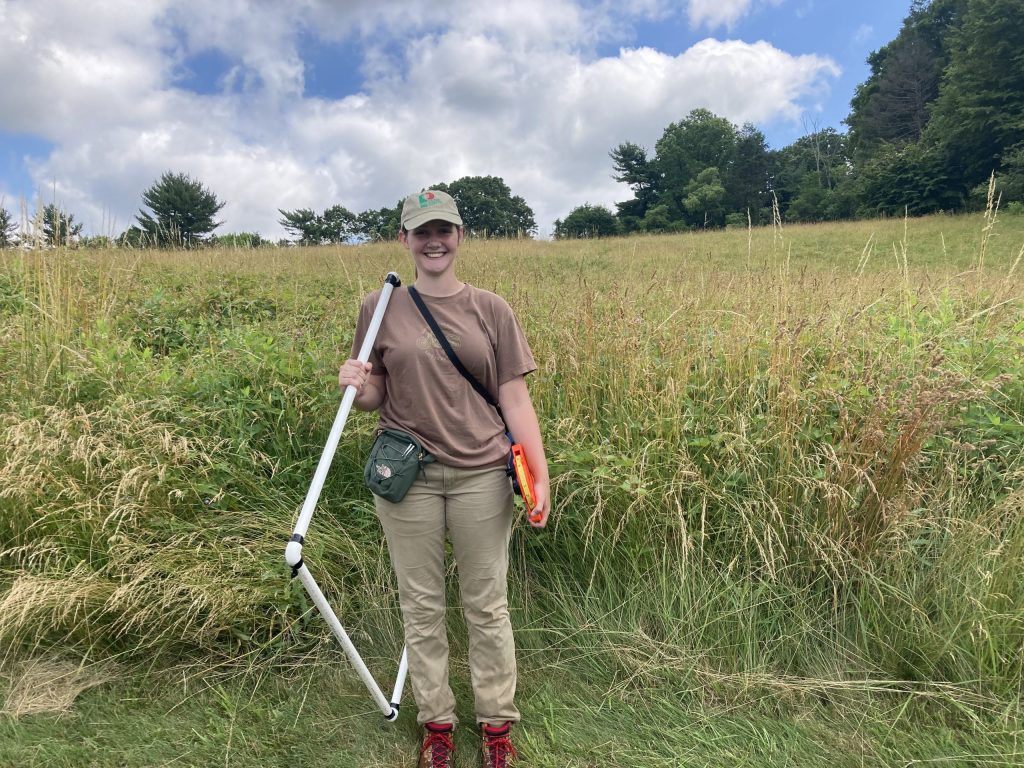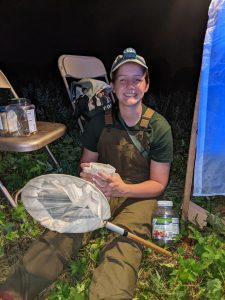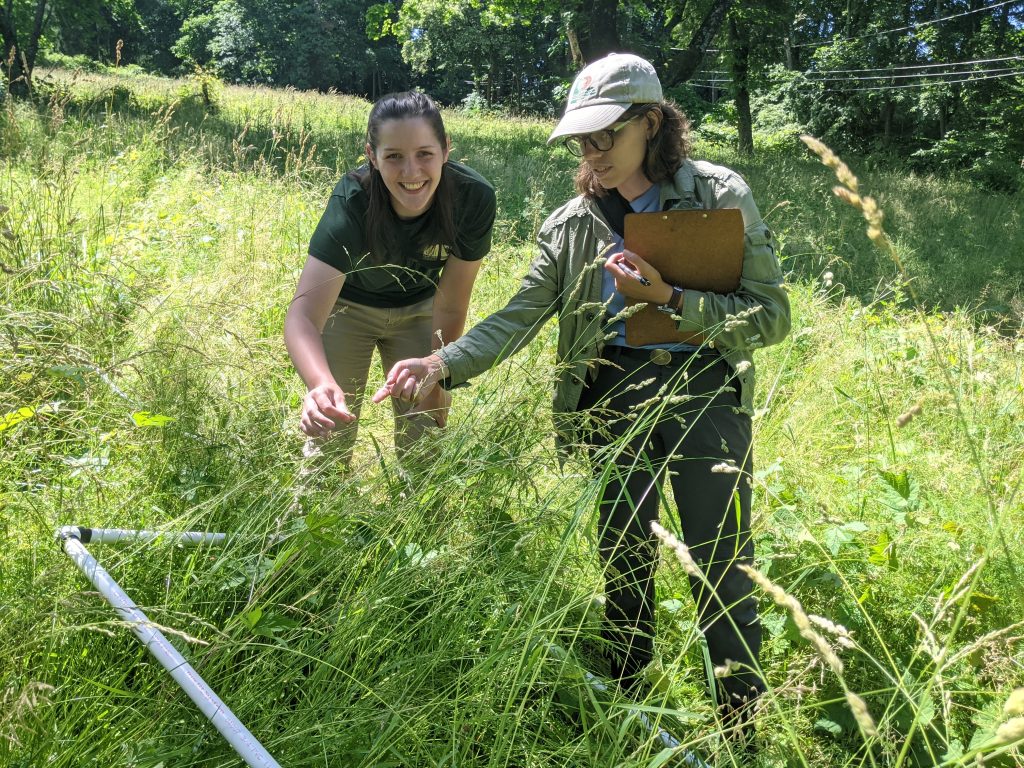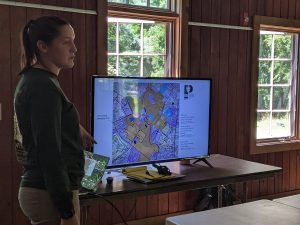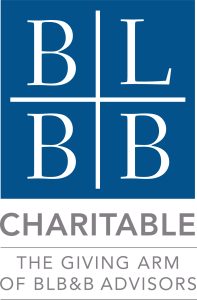Written by: Maria Paula Mugnani
August 9th, 2022
If you ask entomology intern Kaitlyn Chaffin the best way to learn about insects, she will tell you to engage with them hands-on. “Get outside. You’re not going to gain an appreciation reading about them. Touch them. Observe them. You will be surprised how quickly you develop a greater understanding and interest.”
A 2022 graduate of Delaware Valley University, Katilyn can attest to how taking an interest in entomology can change your perspective first-hand. “In college, I was a conservation wildlife management major and I wanted to be a wildlife biologist,” she said. “One of my prerequisites was to take a more specialized course. I saw a bunch of students on campus walking around with nets and it looked like fun. I asked around and they told me it was for an entomology course. And I was like ‘what’s entomology?’”
By the end of the course, she had collected and pinned over a hundred insects in the field and desperately wanted to pursue a career in entomology research. “I ended up falling in love with the field aspect, collecting insects and observing their physical differences and behaviors.”
Hungry for more experience, Katilyn applied for Pennypack Trust’s first-ever entomology-focused internship. She spent the summer under the mentorship of staff entomologist Sarah Pellecchia, studying plant-insect pollinator interactions in local grasslands. Working together, they spent hours in the field extensively documenting these relationships to gain a better understanding of the insect diversity supported by the current mowing regimes and plant communities. The research is just one aspect of a long-term project that explores the structural dynamics of local grassland communities through the lens of insects—which provide vital ecological services that support organisms throughout the food chain. Pennypack Trust staff are excited about this research because it will not only provide data to guide restoration efforts but will also develop sampling methods to evaluate other natural communities.
Katilyn knew she would enjoy learning new fieldwork methods but did not anticipate the breadth of experience she would acquire on the project—everything from plant surveys and nocturnal moth sampling to rigorous specimen identification in the lab. “I thought I knew a lot, coming into this internship. I knew a couple of species pretty well, but at the Trust, I learned all the scientific names of hundreds of different species and how to identify them. It was amazing.”
When Katilyn was not in the field, she honed her skills in data organization and analysis. But she especially enjoyed using dichotomous keys to identify bees under the microscope. “Looking at all the distinct details of the different bees was fascinating. You see one bumblebee in the field, and you think that’s all there is, but it turns out there are like eight species. I love looking at all the characteristics that differentiate them.”
Now at the end of her internship, Katilyn hopes to earn a PhD in entomology and someday lead a lab directing her own interns and research. She recommends future Pennypack Trust interns take advantage of all the opportunities to learn from staff and participate in the plethora of ongoing research and restoration projects. “Get involved in everything you can. Ask questions. There are so many things to do at Pennypack [Trust]. I came out a better person knowing more.”
Pennypack Trust’s internship program is made possible by BLBB Charitable and the generous donors of the Robertson Endowment. For open internship opportunities click HERE.

